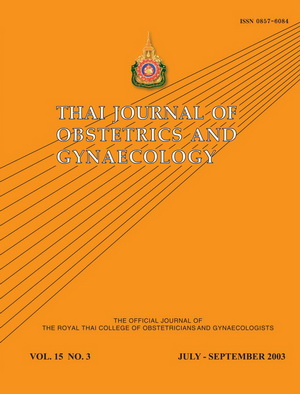Editorial
Main Article Content
Abstract
Health-related quality of life (HRQOL) is an increasingly important outcome measure in medicine and
healthcare. HRQOL is a multidimensional, dynamic concept that encompasses physical, psychological, and social aspects that are associated with a particular disease or its treatment. It is now widely used in clinical trials and in patient management for assessing morbidity and the impact of treatment. This particularly applies to clinical trials in which health status tools are being used to aid clinical decision-making regarding treatment choices by providing additional information on the benefis of medical therapies or interventions from the patient’s perspective. However, very few studies were conducted on HRQOL in the Obstetrics and Gynecology fied in Thailand. It may be due to lacking of knowledge about this aspect. In this issue, the review of health-related quality of life for obstetricians and gynecologists was published in the special article. Numerous studies have reported on the impact that gynecologic cancers and treatments for these conditions have on a woman’s HRQOL. However, little has been published on the subject of common gynecologic conditions, such as, endometriosis, menorrhagia , chronic pelvic pain, urinary stress incontinence and polycystic ovary syndrome.
These disorders are major sources of psychological morbidity and can negatively affect quality of life. In this issue, quality of life was evaluated in the women who had the problems of urinary incontinence. This study was an example of the research on quality of life issue.


